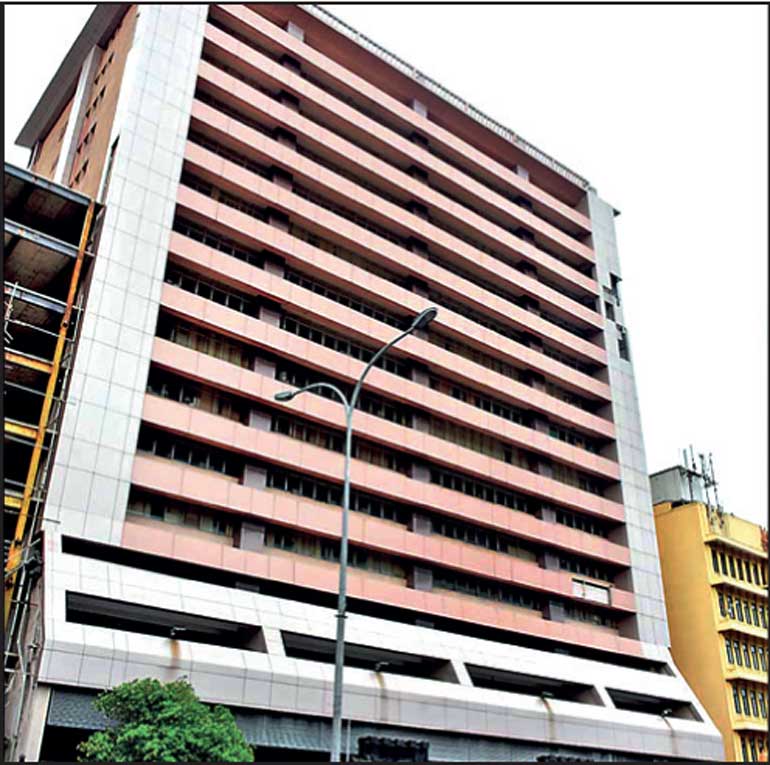Tuesday Feb 17, 2026
Tuesday Feb 17, 2026
Wednesday, 17 September 2025 00:00 - - {{hitsCtrl.values.hits}}

Sri Lanka’s Rs. 10 billion Revenue Administration Management Information System (RAMIS), introduced in 2016 to modernise tax administration, is facing serious risks due to weaknesses in IT capacity, governance, and vendor management at the Inland Revenue Department (IRD), the World Bank has warned.
“The lack of functionality in the Revenue Administration Management Information System (RAMIS) remains a binding constraint in improving tax administration,” it said in its latest assessment titled: Sri Lanka Public Finance Review – Towards a Balanced Fiscal Adjustment.
“There is a significant gap in maturity of IRD’s IT department, posing challenges to handling critical tasks in the absence of vendor support, in turn hampering the department’s ability to drive digital transformation or optimise the performance of key systems like RAMIS.”
Despite the investment, the RAMIS system, which IRD implemented to modernise the tax administration’s processes, has underperformed. Without the full spectrum of automated capabilities functional in RAMIS, the IRD must rely on manual interventions, which are resource-intensive, error-prone, and thus less reliable.
Under a new takeover plan, IRD is expected to build core capabilities to develop, run, and manage the core IT systems by 2027. RAMIS was developed by a Singaporean firm.
“Given RAMIS’s role in managing Rs. trillion ($ 6.6 billion) in national revenue, ensuring long-term financial sustainability and service continuity is critical. Strategic cost management and proactive financial planning will be essential to maintaining RAMIS’s functionality and reliability beyond vendor support,” the World Bank said.
“This would need the proper implementation of strategies laid out in the IRD IT Strategic Plan to be able to independently maintain the system should it transition to in-house development post-2027, or effectively manage its outsourced service provider, or oversee a transition to a local provider.”
The World Bank said weaknesses in IT governance, vendor management, and human resource management are compounding the problems. RAMIS has failed to deliver core functions such as taxpayer portals, automated data analytics, risk management, and taxpayer validation.
“This failure indicates the need for IRD to improve its engagement with external vendors, regardless of the degree of reliance on them, and the need to manage critical IT assets effectively.”
It stressed that the shortcomings reflect broader institutional gaps.
“The key frameworks and capabilities include developing and implementing an IT governance framework, recruiting and retaining skilled IT personnel, evaluating and rethinking business and administrative processes, and undertaking robust change management led by senior leadership.”
While the IT Strategic Plan provides a robust foundation for addressing key modernisation objectives, it does not go far enough in identifying and mitigating critical gaps.
The plan lacks concrete steps to address the absence of a comprehensive IT governance framework and fails to offer viable solutions for the recruitment and retention of skilled IT personnel. The inability to attract and retain skilled IT staff undermines the IRD’s long-term capability to execute its strategic goals.
The report also highlighted that IRD’s efficiency has improved.
“Over the period 2020-2023, IRD’s cost of collection fell from 0.86 rupees to 0.41 rupees for every Rs. 100 collected, as both recurrent and capital expenditure remained tightly controlled, while revenue collection increased drastically. The cost of collection is below the global norm, which is closer to Rs. 1 for Rs. 100 collected.”
However, it added that “to achieve its revenue goals, and sustain progress over the medium term, Sri Lanka needs to invest far more in improving revenue collection. World Bank experience from other countries suggests that such investments could result in 40 times the returns.”
The World Bank called for comprehensive reform. “Sri Lanka needs to modernise IRD as part of a comprehensive reform. The plan needs to be substantially detailed, well sequenced, and adequately resourced to be well-implemented. IRD also needs complementary reform in HR capabilities to support a comprehensive overhaul.”
It recommended adopting governance frameworks such as COBIT or ISO/IEC 38500, strengthening vendor management, upgrading IT infrastructure, and creating a data warehouse for better analysis.
“The plan should also consider developing internal skills to manage and monitor vendors effectively, as well as expanding the internal IT team for maintaining RAMIS, alongside developing staff training and retention programs.”
The report said IRD requires a strong project management unit reporting to a steering committee that includes senior government leadership to drive change.
“The reform plan will also need adequate resources to result in large revenue collection gains. Addressing IT challenges will require additional investment. Benchmarking suggests that current staffing of the IRD’s IT cadre is low and must be increased.”
It also called for a shift to risk-based approaches in scrutiny, audits, and refunds to replace the current discretionary system.
“Implementing these broader shifts requires culture change as well as legislative reform. Modernising and moving to risk-based approaches will require a new Tax Administration and Procedures Law (TAPL). This is essential to eliminate redundant rules, clarify and codify existing guidelines, and enable more transparent, less discretionary, more efficient tax administrative processes,” the World Bank assessment said.